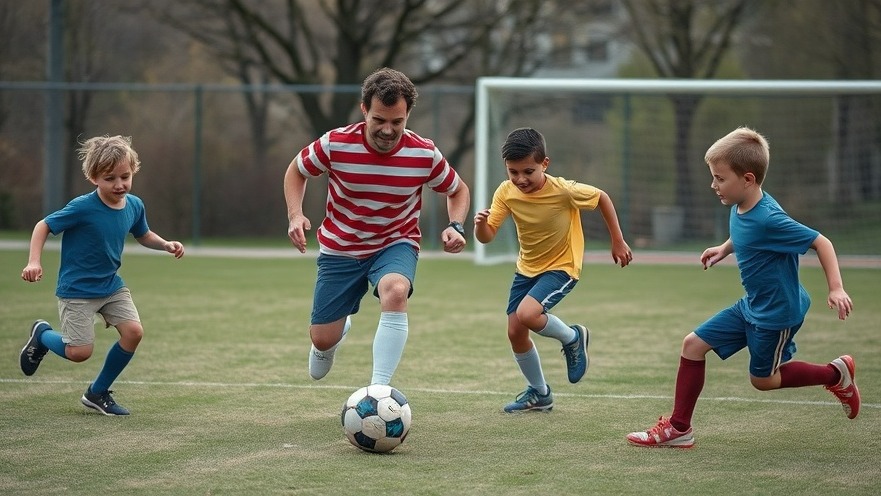
Why Uncles Matter: The Hidden Influence in Child Development
As traditional family structures evolve, the significance of uncles has surfaced as a vital yet often overlooked aspect of child upbringing. The role of an uncle transcends mere familial ties; it encapsulates a unique blend of mentorship, play, and emotional guidance. With many children today growing up in single-parent households, uncles can fill the gaps left by absent fathers, according to various studies, including those that highlight the impacts of a consistent male presence in a child's life. This fulfilling relationship fosters a sense of stability, bolsters emotional growth, and contributes significantly to the child's social mobility.
Balancing Play and Discipline: The Art of Being an Uncle
Being an uncle is not just a carefree whirlwind of fun; it also involves responsibilities that may surprise many. The role requires a delicate balance between indulging in play and imposing necessary boundaries. For example, in the role of 'mean Uncle Nick,' as described by Nick Fuller Googins, there are moments where firm guidance is essential. Such interactions teach children important lessons about choices, consequences, and respect—all of which pave the way for their development into responsible adults.
Play as a Teaching Tool: How Engagement Shapes Growth
Engaging in play is crucial not just for children's development but also for adults. When uncles bring joy through fun activities, they simultaneously promote confidence in children. Through playful challenges, children learn risk assessment outside their parents' protective gaze. Uncles encourage kids to jump into unknown waters—literally and metaphorically. This kind of experiential learning, layered with encouragement, is vital for fostering independence, a lesson many uncles can share from their own experiences of stepping out of their comfort zones.
Creating Lasting Memories: The Importance of Quality Time
The impact of simple moments spent together cannot be overstated. Whether it's sharing a scoop of ice cream or crafting makeshift blanket forts, these experiences form cherished memories that children carry into adulthood. Notably, studies show that positive interactions with paternal figures (including uncles) enhance a child's emotional well-being and sense of belonging. They serve as a reminder of the warmth and safety found in familial love—a treasure that children hold dear as they navigate the complexities of growing up.
Filling the Father Gap: A Community Responsibility
The modern familial landscape demands a reassessment of the roles different male figures play in a child’s life. With nearly one in four American kids living without a father at home, uncles are crucial in providing emotional security and guidance. Emma Waters in her study highlighted the need for community involvements that allow all family members, especially uncles, to step into these roles. As a surrogate father figure, unclehood contributes to children's overall resilience and adaptability, crucial traits in today’s fast-changing environment.
Take Action: Be that Uncle Who Makes a Difference
Being an uncle comes with a powerful opportunity to positively influence the next generation’s life. If you’re one, embrace it. Dedicate time, engage in laughter and fun, but don’t shy away from teaching valuable lessons. If you’re not an uncle but have friends who are, reach out and remind them of the importance of their role. Together, we can ensure that every child has access to a loving male figure who is there to guide and support them.
 Add Row
Add Row  Add
Add 




Write A Comment